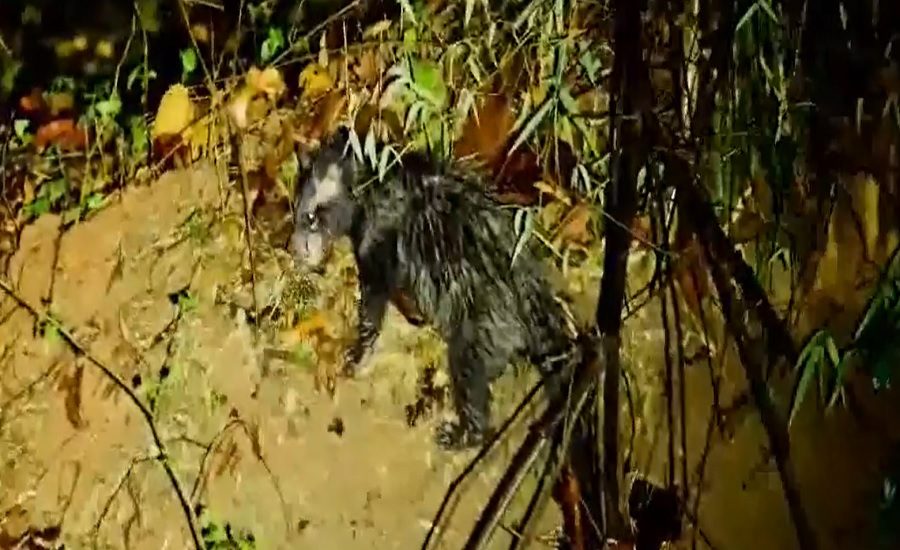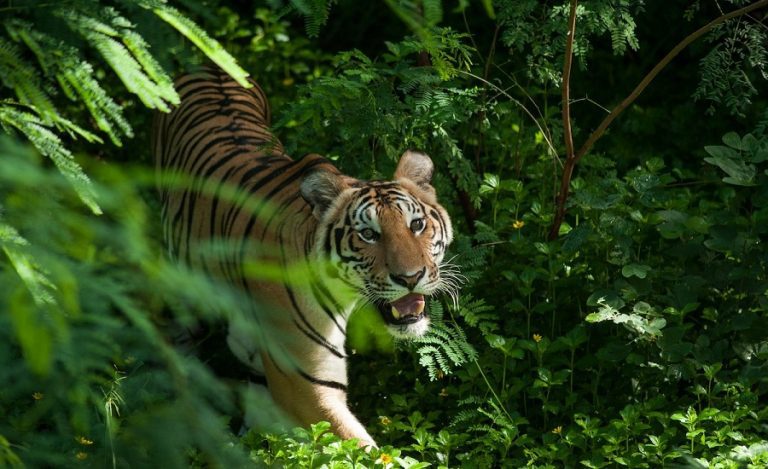Umaria, Madhya Pradesh: The Bandhavgarh National Park, one of India’s most renowned tiger reserves, is once again making headlines—but this time, not for its big cats. A rare species of civet cat has been spotted in the dense forests of Bandhavgarh, sending waves of excitement across the wildlife community.
Captured late at night by an experienced wildlife photographer, the sighting has been widely shared on social media platforms, with the video of the civet hunting in the wild going viral.
Night-Time Encounter with a Rare Predator
According to park officials, the photographer was exploring a quiet stretch of the Bandhavgarh Tiger Reserve when he noticed unusual movement. Turning on his camera flash, he managed to catch the rare civet cat on film—engaged in hunting activity, displaying its natural predatory behavior.
This marks a rare photographic documentation of the civet cat in its natural habitat within Bandhavgarh.
What Makes the Civet Cat Unique?
The civet cat is a nocturnal and elusive mammal, typically found in dense forest ecosystems. While secretive in nature, it is globally known for a unique connection to the coffee industry.
The animal is key to the production of ‘Kopi Luwak‘, the world’s most expensive coffee. The civet consumes ripe coffee cherries, which undergo enzymatic fermentation in its digestive tract. The beans are then excreted, collected, cleaned, and roasted—producing a rare delicacy praised for its smooth flavor and low bitterness.
Positive Indicator for Bandhavgarh’s Ecosystem
Wildlife experts consider the civet cat’s presence a strong indicator of healthy biodiversity in Bandhavgarh. “Sightings like these point to a balanced and undisturbed ecosystem,” said a senior forest official. “It’s proof that the park continues to support rare and sensitive species beyond just apex predators.”
Bandhavgarh, already popular for its thriving tiger population, now has another rare resident drawing attention to its flourishing forest life.





























